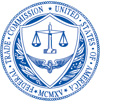The Federal Trade Commission cracked down on a massive international scam that tricked tens of thousands of computer users into believing their computers were riddled with malware and then paying the scammers hundreds of dollars to “fix” the problem.
According to complaints filed by the FTC, the scammers called computer users and claimed to be affiliated with legitimate companies, including Dell, Microsoft, McAfee and Norton, and played on people’s fear of computer infections and hackers.
![]() The Federal Trade Commission (FTC) is the nation’s consumer protection agency. The FTC works to prevent fraudulent, deceptive and unfair business practices in the marketplace.
The Federal Trade Commission (FTC) is the nation’s consumer protection agency. The FTC works to prevent fraudulent, deceptive and unfair business practices in the marketplace.